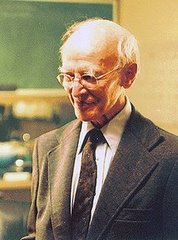Abernathy, John
John Abernethy (October 19, 1680-December 1, 1740), called “the father of non-subscription”, was a prominent Irish Presbyterian minister who led many ministers and congregations out
John Abernethy (October 19, 1680-December 1, 1740), called “the father of non-subscription”, was a prominent Irish Presbyterian minister who led many ministers and congregations out
PLAN OF ORGANIZATION. 1. Name. — This organization shall be known as “The American Congress of Liberal Religious Societies.” 2. Objects.—To unite in a larger
Giovanni Giorgio Biandrata (or Blandrata) (1516-May 5, 1588), physician and counsel to the courts of Eastern Europe, brought the ideas of Michael Servetus and the
Brook Farm, a celebrated nineteenth-century New England utopian community, was founded by Unitarian minister George Ripley and other progressive, Transcendentalist Unitarians, to be, in Ripley’s
Field Marshal Sir Neville Bowles Chamberlain (January 10, 1820-February 3, 1902), a significant figure in Britain’s wars on the Indian subcontinent, was the only person
Celio Secondo Curione (May 1, 1503-December 24, 1569), a classical scholar and professor of eloquence, was a leading religious and humanistic voice in the community
If your browser cannot read Polish characters, click here. The Czaplic family, nobles from Wołyń (Volhynia) in today’s Ukraine, were patrons and supporters of Arianism
If your browser can read Polish characters, click here. The Czaplic family, nobles from Wolyn (Volhynia) in today’s Ukraine, were patrons and supporters of Arianism
Responsive ResolutionUnitarian Universalist 2012 General Assembly WHEREAS the delegates of the 2010 General Assembly instructed the UUA Board to create a “Justice General Assembly” in
William Drennan (May 23, 1754-February 5, 1820), a physician, poet, educationalist and political radical, was one of the chief architects of the Society of United
John Murray Forbes (February 23, 1813-October 12, 1898), a leading Boston businessman and philanthropist, financed and operated a great nineteenth century industrial empire. He and
Frances was born in Baltimore, Maryland, to free parents whose names are unknown. After her mother died in 1828, Frances was raised by her aunt

Charles Hartshorne (pronounced Harts-horne—as in “deer’s horn”) (June 5, 1897-October 9, 2000) was the 20th century’s leading exponent of process theism. In his long career
A. Eustace Haydon (1880-1975), a pioneer in the study of world religions, was a leader of the Humanist movement. Born in Canada, he was ordained
If your browser cannot read Polish characters, click here. Gabriel Hojski (ca.1555-1632) and his son Roman Hojski (ca.1585-1635), nobles from Wołyń (Volhynia) in today’s Ukraine
If your browser can read Polish characters, click here. Gabriel Hojski (ca.1555-1632) and his son Roman Hojski (ca.1585-1635), nobles from Wolyn (Volhynia) in today’s Ukraine
The Humiliati, composed mostly of young Universalist ministers recently graduated from the School of Religion of Tufts College in Medford, Massachusetts, was organized in 1945
David Starr Jordan (January 19, 1851-September 19, 1931), an ichthyologist and an early teacher of evolutionary science, was president of Indiana University and Stanford University
Charles Rhind Joy (December 5, 1885- September 26, 1978) was a Unitarian minister, American Unitarian Association official, and an international humanitarian worker affiliated with the
James Kirkpatrick (c.1676-1743), an Irish Presbyterian minister, played a leading role in the development of non-subscription and the creation of the Presbytery of Antrim as
Jan (John) Kiszka (c.1552-1592) was a politician, magnate, patron and benefactor of Arianism in the 16th-century Polish-Lithuanian Commonwealth. Jan was the eldest son of Stanislaw
In 1969 the Universalist Historical Society (UHS) engaged Russell E. Miller, University Archivist and Dickson Professor of English and American History at Tufts University, a
Jerzy (George) Niemirycz (1612-1659) was an ambitious Arian nobleman and statesman in the Polish-Lithuanian Commonwealth. During his later life the Commonwealth, which included the Ukraine,
Kenneth Leo Patton (August 25, 1911-December 25, 1994), identifed as one of the major poets and a prophet of contemporary liberal religion, was a voice
Frederick William Pethick-Lawrence (December 28, 1871-September 10, 1961), suffragist and Labour politician, was a member of the British Cabinet following World War II who worked
James Relly (c.1722-April 25, 1778) was, as a young British minister, one a sizable group of Methodist preachers, including George Whitefield and John Wesley, whose
Universalists in late 18th century New England were not in theological accord regarding the afterlife. Some, like Caleb Rich, believed that the soul would experience
Rammohun Roy (c.1772-September 27, 1833), a Hindu monotheist, who made early translations of Vedic scriptures into English, co-founded the Calcutta Unitarian Society, and later founded
Kate Olivia (Ophelia) Sessions chose a very unusual profession for a woman in 1885. Her love of nature, of gardening and flowers caused her to
Spiritualism as a religious movement was a varied set of beliefs and practices related to the conviction that the living and the dead could be
For about 25 years, throughout roughly the first quarter of the 19th century, most of New England was caught up in a tangle of theological
The Theological School of St. Lawrence University in Canton, New York, also known as the Canton Theological School, received its charter in 1856, the first
Edward Williams (1747-1826) was one of the most influential and controversial figures Wales has produced. Raised Anglican, Williams as a young man enjoyed connections with
Fannie Barrier Williams (February 12, 1855-March 4, 1944) was an African American teacher, social activist, clubwoman, lecturer, and journalist who worked for social justice, civil
The Creed – 1803 We believe that the Holy Scriptures of the Old and New Testaments contain a revelation of the character of God and